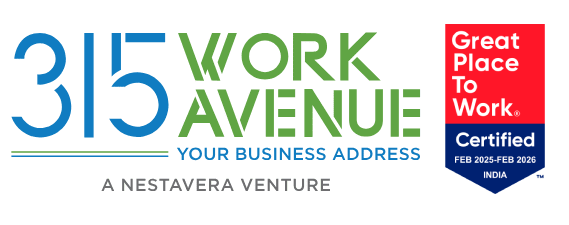On the professional front, we are often caught in a hurricane of deadlines, meeting endless to-do lists. We are in the relentless pursuit of productivity and success, which makes us forget an important component of our workday which is taking breaks. But the question that always comes along with it is “Why is it important to take breaks at work?” Well, honestly not quite.
This blog delves into the critical yet often underestimated importance of stepping away from our desks. It’s a common misconception that breaks are a luxury or a sign of decreased productivity. Contrary to this belief, strategic pauses are essential for maintaining long-term efficiency and mental well-being. This blog aims to provide you fresh perspectives on the importance of taking regular breaks during your working day.
Common Misconceptions About Taking Breaks at Work
In the contemporary workspace, where efficiency and productivity are highly prized, the concept of taking breaks often gets misunderstood. As a working professional, you might have encountered various misconceptions about breaks, especially in environments striving for peak performance. Here, we’ll debunk some of these common misconceptions :
- Breaks Are a Sign of Laziness : This is a common myth. Contrary to being a sign of laziness, breaks are essential for maintaining productivity. They offer a necessary pause, allowing your mind to recharge and return to work with renewed focus.
- Continuous Work Equals Higher Productivity : It’s a misconception that working non-stop leads to more productivity. In reality, the brain cannot sustain prolonged concentration without a drop in efficiency. Regular breaks are vital to keep productivity at an optimal level.
- Short Breaks Don’t Make a Difference : Even brief breaks can have a significant positive impact. A quick walk or a few minutes of relaxation can refresh your mind, prevent burnout, and boost creativity.
- Breaks Disrupt Workflow : While it might seem that taking breaks could disrupt your workflow, they can actually enhance it. Breaks prevent mental fatigue and help maintain a consistent performance level, integrating seamlessly into your work routine.
- All Breaks Are the Same : Not all breaks are equally effective. Activities like stretching, a short walk, or a moment of mindfulness are more beneficial than simply scrolling through social media. Choosing the right kind of break can maximize the rejuvenating effect on your productivity and well-being.

Best Practices for Taking Breaks at Work
In the current work environment, everything goes around at a fast pace, which is why it’s important to take breaks. While some people may not understand the concept behind taking breaks, it is important as it boosts productivity, creativity and overall well-being. While working in an office, it is important to effectively utilize your break time. Let us see what are the best practices you can adopt to take breaks to regain energy, and increase your productivity at work.
Embrace the Power of Short, Frequent Breaks
Research suggests that our brains work best with regular, short breaks. The Pomodoro Technique, for instance, advocates for working in 25-minute bursts followed by a 5-minute break.
Step Away from Your Workspace
Physically moving away from your desk or workstation during breaks is essential. It signals to your brain that it’s time to relax. Whether it’s a short walk, a trip to a coworking space lounge, or just stepping outside for fresh air, changing your environment can refresh your mind.
Engage in Non-Work-Related Activities
During your break, engage in activities that are not related to work. This could be anything from reading a book, listening to music, or simply daydreaming. Such activities can foster creativity and help you return to work with a fresh perspective.
Practice Mindfulness and Relaxation Techniques
Mindfulness exercises like meditation or deep breathing can be incredibly beneficial during breaks. They help reduce stress and improve concentration.
Stay Hydrated and Nourished
Use your breaks to hydrate and have a healthy snack. When you are hydrated and constantly eat nutritious food, your energy levels are boosted along with your cognitive functions. This makes you more efficient when you return to work.

Schedule and Plan Your Breaks
Randomly taking breaks can sometimes disrupt workflow. Instead, schedule your breaks at intervals that suit your natural rhythm. When you plan your break, it can also create a sense of anticipation, making work hours more productive.
Avoid Tech During Breaks
Constant exposure to screens can be draining. Try to avoid spending your break time on your phone or computer. This digital detox, however brief, can be incredibly rejuvenating.
Socialize and Network
If you’re in a coworking space like 315 Work Avenue, use break time to socialize or network with fellow professionals. This will not only provide you with a break from work, but also give your opportunities to exchange ideas and build your network.
Reflect and Plan
you can use a break to reflect on what your achievements are, and plan your future steps. This is something that can help you to stay organized and focused on your goals.
Listen to Your Body
Lastly, pay attention to what your body and mind need. Sometimes you might need a longer break, or perhaps a quick power nap. Effective break management also comprises understanding and responding to your body’s signals.

How Taking Breaks Can Serve a Big Advantage
We should keep reminding ourselves that taking breaks at work is a necessity. As mentioned in the above blog, it is important that we step away from our desks for a few minutes which can have a significant boost on productivity, creativity, and overall well-being. The modern work environment, particularly in dynamic settings like coworking spaces, offers us the flexibility to take these breaks without the guilt or stigma once associated with them.
Remember, taking a break is not about shirking responsibilities. Instead, it is about giving a much needed break to recharge your brain and body. As working professionals, it’s crucial to acknowledge that non-stop work is not a badge of honor but a fast track to burnout. Regular breaks don’t just enhance our performance at work but we also prioritize our mental and physical health. So, next time you feel the weight of your workload bearing down on you, step away for a moment. Don’t think of it as a break, but rather an investment for your productivity and well-being.





